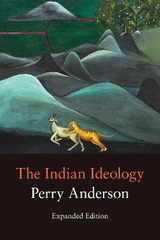
The Indian Ideology
Seiten
2013
Verso Books (Verlag)
978-1-78168-259-3 (ISBN)
Verso Books (Verlag)
978-1-78168-259-3 (ISBN)
Zu diesem Artikel existiert eine Nachauflage
An analysis of the failings of the Indian Republic.
Today, the Indian state claims to possess a harmonious territorial unity, to embody the values of a stable political democracy, and to adhere to a steadfast religious impartiality. Even many of those critical of the inequalities of Indian society still underwrite such claims. But does the "idea of India" correspond to the realities of the Union?
The Indian Ideology suggests that the roots of the republic's current ills go very deep, historically. They lie in the way the struggle for independence culminated in the transfer of power from British rule to Congress in a divided subcontinent, not least in the roles played by Gandhi, as the great architect of the movement, and Nehru, as his appointed successor, in the catastrophe of partition. Only an honest reckoning with that disaster, Perry Anderson argues, offers an understanding of what was has gone wrong since independence.
Revisiting a century's history, and sifting the uncomfortable realities from the ideology, Anderson offers an alternative way to look at the story of the nation, and the nature of a state that is less in conflict with caste than built upon it.
Today, the Indian state claims to possess a harmonious territorial unity, to embody the values of a stable political democracy, and to adhere to a steadfast religious impartiality. Even many of those critical of the inequalities of Indian society still underwrite such claims. But does the "idea of India" correspond to the realities of the Union?
The Indian Ideology suggests that the roots of the republic's current ills go very deep, historically. They lie in the way the struggle for independence culminated in the transfer of power from British rule to Congress in a divided subcontinent, not least in the roles played by Gandhi, as the great architect of the movement, and Nehru, as his appointed successor, in the catastrophe of partition. Only an honest reckoning with that disaster, Perry Anderson argues, offers an understanding of what was has gone wrong since independence.
Revisiting a century's history, and sifting the uncomfortable realities from the ideology, Anderson offers an alternative way to look at the story of the nation, and the nature of a state that is less in conflict with caste than built upon it.
Perry Anderson taught History at UCLA for thirty years and is an Editor at New Left Review. Recent books include Brazil Apart, The Antinomies of Antonio Gramsci and The H-Word: The Peripeteia of Hegemony.
| Erscheint lt. Verlag | 5.11.2013 |
|---|---|
| Verlagsort | London |
| Sprache | englisch |
| Maße | 139 x 209 mm |
| Gewicht | 278 g |
| Themenwelt | Geschichte ► Allgemeine Geschichte ► Zeitgeschichte |
| Geisteswissenschaften ► Geschichte ► Regional- / Ländergeschichte | |
| Sozialwissenschaften ► Politik / Verwaltung | |
| ISBN-10 | 1-78168-259-3 / 1781682593 |
| ISBN-13 | 978-1-78168-259-3 / 9781781682593 |
| Zustand | Neuware |
| Haben Sie eine Frage zum Produkt? |
Mehr entdecken
aus dem Bereich
aus dem Bereich
Gewalt, Umwelt, Identität, Methode
Buch | Softcover (2024)
Spector Books OHG (Verlag)
36,00 €
wie Freud im Kollektiv verschwand
Buch | Hardcover (2024)
Klett-Cotta (Verlag)
25,00 €



